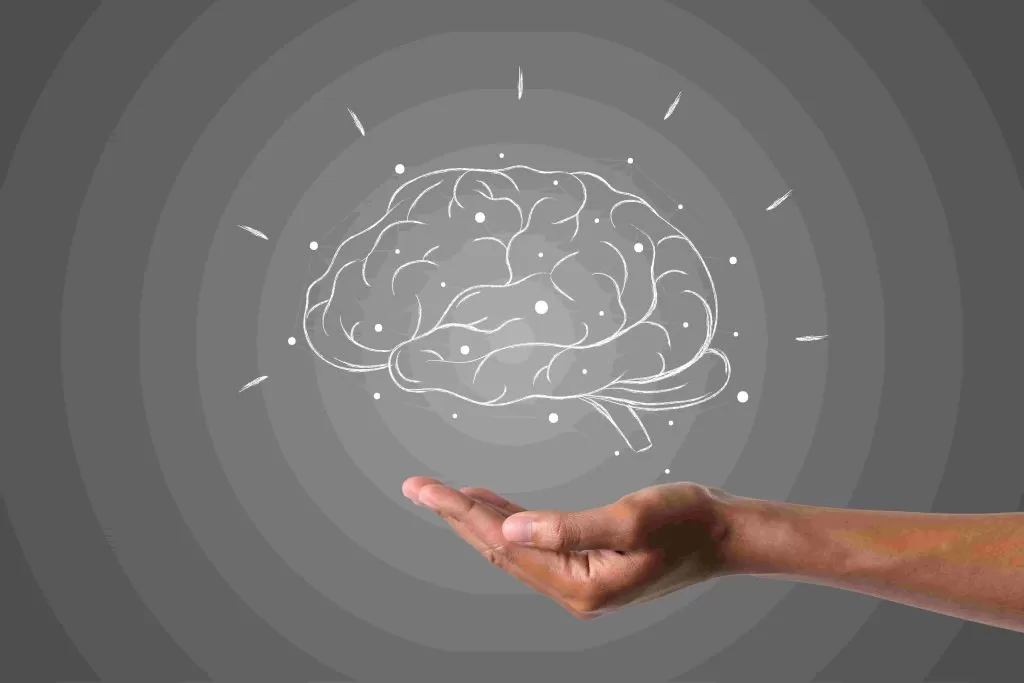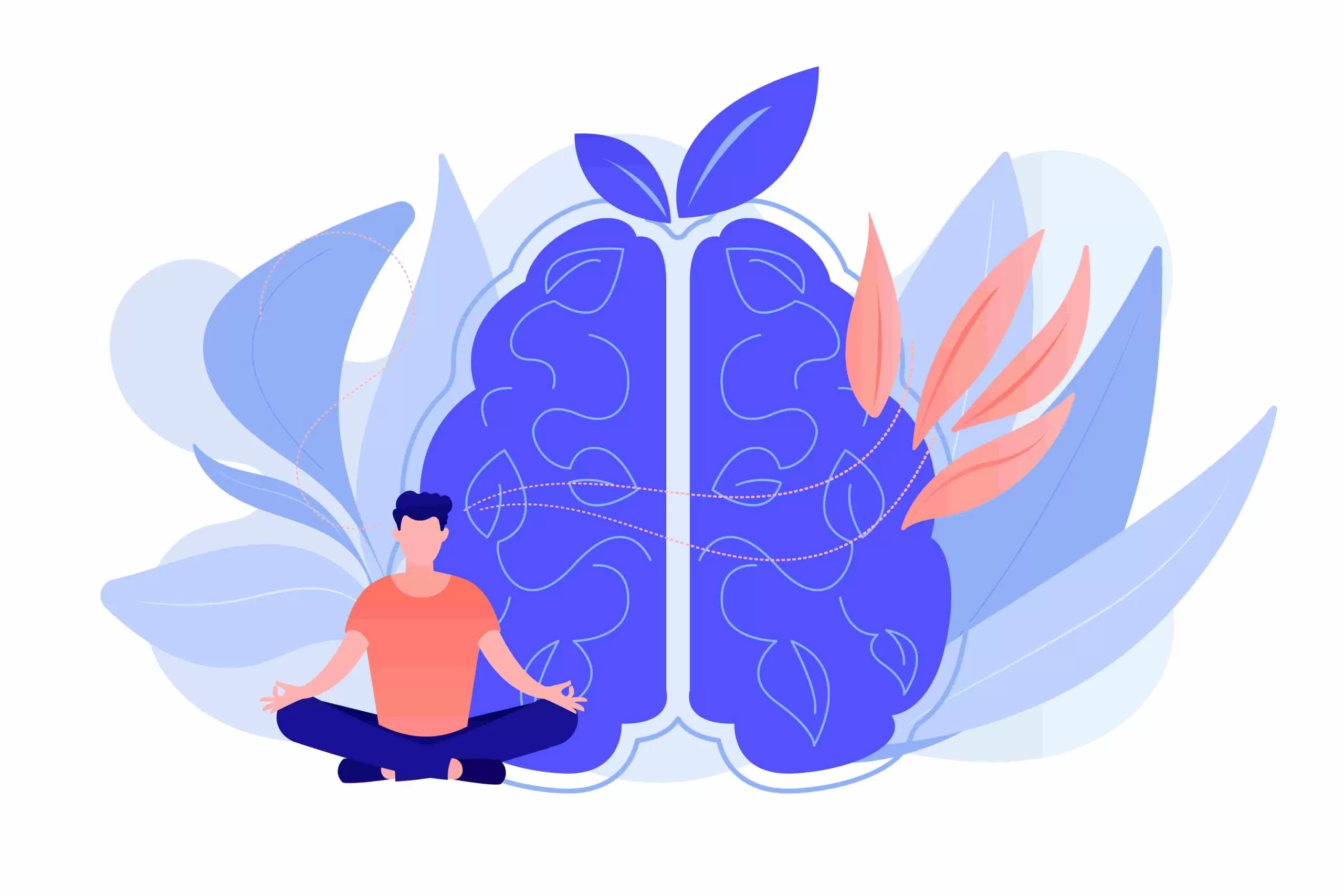The question of “How mindfulness reduces stress” has received a lot of attention recently as more and more individuals look for strategies to deal with the stresses of daily life. Mental and physical health have been found to improve by practicing mindfulness, which involves being in the present and paying attention to one’s thoughts, feelings, and bodily sensations. Stress reduction is one of its most important advantages.
Stress is a normal reaction to difficult circumstances, but prolonged stress may seriously harm our physical and mental health. Numerous health issues, including heart disease, sadness, and anxiety, can be exacerbated by it. By assisting people in being more conscious of their thoughts and feelings and responding to them in a more positive and constructive way, mindfulness has been proved to be an effective technique to relieve stress.

What is Mindfulness?
The discipline of mindfulness involves being fully present in the moment while refraining from passing judgment on it. It entails focusing on the current experience, whether it be a feeling, an emotion, or a cognition. The practice of mindfulness aims to increase self-awareness, self-awareness of others, self-awareness of oneself, and the capacity to respond to challenging circumstances more rationally and objectively. Numerous methods, including yoga, meditation, and mindful breathing, can be used to exercise mindfulness. According to research, mindfulness can help with both mental and physical health in a variety of ways, such as by lowering stress and anxiety, boosting mood, and developing self-awareness and self-compassion.
How Mindfulness Reduces Stress?
Mindfulness is a very powerful technique to help manage your stress. It is a stress buster. Following are the ways how mindfulness reduces stress:
Increases Awareness of Physical and Emotional Signs of Stress
Being more aware of one’s body and their physical and emotional moods is one way that mindfulness can raise awareness of the physical and emotional symptoms of stress. Stress frequently causes physical changes in our body, such as stiff muscles, fast breathing, or an accelerated heart rate. Even while these physical alterations might be modest, mindfulness training can help us become more conscious of them and identify them as stress-related symptoms.
Stress can cause both physical and emotional changes, including emotions like sorrow, rage, or worry. People who practice mindfulness might become more conscious of how they are feeling emotionally and learn to identify stressful situations. People may learn more about what is stressing them out and how to handle it by paying attention to these feelings in a nonjudgmental way.

Mindfulness can aid people in recognizing the physical and emotional symptoms of stress and helping them take action before it gets out of control. For instance, someone may decide to practice deep breathing or use a relaxation method if they notice that their muscles are stiff or that they are feeling nervous. This will enable them to lower their stress levels. Individuals may adjust their lifestyles to assist reduce stress in the future by being more conscious of their stress levels. These changes might include obtaining more sleep or learning how to manage their workload more skillfully.
Promotes a More Accepting and Compassionate Attitude
Through increasing one’s awareness of their thoughts, emotions, and bodily sensations and embracing them without passing judgment, people can develop a more accepting and compassionate attitude. When it comes to controlling challenging or unfavorable events, such as stress, this may be extremely useful.
We frequently think negatively or critically of ourselves or our surroundings when we are under stress. We can convince ourselves, for instance, that we are inadequate, that we are failing, or that we ought to be able to manage situations better. Feelings of inadequacy, guilt, and self-blame can result from these negative ideas, which can raise stress and make it more difficult to deal.
Mindfulness, on the other hand, teaches people to identify and appreciate their thoughts and feelings without passing judgment, which promotes a more welcoming and sympathetic attitude. People can learn to examine their unpleasant thoughts and feelings without being emotionally tied to them, as opposed to becoming consumed by them. This can lessen the harmful effects that stress has on the body and mind.

Along with promoting a more accepting and sympathetic mindset toward one’s own thoughts and feelings, mindfulness can help people become more empathetic and understanding of others. By focusing on the present and being more aware of our own experiences, we may be able to better understand the viewpoints of others. This might improve relationships and reduce stress by fostering greater compassion and understanding.
Enhances Present Moment Concentration and Awareness
By encouraging people to focus on the here and now and their current circumstances rather than ruminating on the past or worrying about the future, mindfulness helps people be more present-moment focused and aware. Since stress is sometimes caused by negative thoughts about the past or the future, this can be extremely beneficial in controlling stress.
When we are under stress, it’s natural to have racing thoughts or to fall into depressive thought patterns like rumination or catastrophic thinking. It may be challenging to concentrate in the present due to these upsetting thoughts. However, mindfulness may assist people in becoming more focused and aware by encouraging them to direct their attention to the present moment and the current experience rather than becoming bogged down in unfavorable thoughts or worrying about the future. This may be accomplished via a variety of mindfulness practices, including meditation, mindful breathing, and mindful movement.

People may learn to monitor their thoughts and emotions without getting caught up in them by engaging in mindfulness exercises and paying attention to the here and now. This might lessen the detrimental effects of stress and enhance general wellbeing. Mindfulness may aid people in managing their stress while also enhancing their concentration and attention in other aspects of their lives. A person may increase their productivity and improve their capacity for handling duties and obligations by training their mind to be present and focused.
As people with mindfulness are better able to think on the here and now and all of the facts at hand rather than becoming bogged down in unfavorable thinking patterns or biases, they may make better judgments.
Developing Coping Skills and Stress Management Techniques
By educating people to become more cognizant of their thoughts, emotions, and bodily sensations and respond to them in a more attentive and purposeful way, mindfulness can help people build coping skills. People can develop a variety of coping mechanisms via mindfulness practice to handle stress and challenging circumstances.

Deep breathing, imagery, gradual muscular relaxation, mindful movement, and self-compassion are some typical coping mechanisms that can be acquired via mindfulness practices. People can create efficient coping mechanisms to deal with stress and challenging circumstances by routinely exercising the coping skills listed below:
- Deep breathing: This involves taking slow, deep breaths to relax the body and calm the mind.
- Visualization: This involves using the imagination to create a calming image or scenario in the mind.
- Progressive muscle relaxation: This involves tensing and relaxing different muscle groups to reduce tension and stress.
- Mindful movement: This involves focussing on the sensations of movement, such as walking or stretching, to cultivate present-moment awareness and reduce stress.
- Self-compassion: This involves practicing kindness and understanding towards oneself, rather than self-criticism, to reduce stress and improve well-being.
For instance, deep breathing or visualization might enable a person who is feeling overwhelmed to relax their thoughts and lessen stress. A person may also utilize progressive muscle relaxation or mindful movement to assist them relax their body and release tension if they are feeling worried.
Reduces Negative Thought Patterns
Stress-causing thought patterns like perfectionism or catastrophic thinking may be identified and challenged with the use of mindfulness. Individuals may learn to identify and reframe these unfavorable thinking patterns by engaging in mindfulness practices, which can lower stress and enhance general wellbeing.
Different Mindfulness Techniques for Stress Reduction
Being mindful involves actively observing one’s thoughts but without reacting, feelings, and sensations. It can be practiced in a variety of ways, such as through body-based activities like yoga, meditation, or physical movement. You can attempt the following varied mindfulness exercises:
1) Body Scan Meditation
This entails finding a comfortable position on the floor or in a chair, then focusing on each part of your body, beginning at the top of your head and working all the way down to your toes. Take a few deep breaths and attempt to relax any tension or discomfort you may be experiencing while you concentrate on each area of your body.
2) Sitting Meditation
You sit comfortably in this exercise, keeping your back straight, and keeping your eyes closed. You can concentrate on your breath, a mantra you repeat to yourself, or a word. If your thoughts start to stray, gently bring them back to your breathing or mantra.
3) Loving-Kindness Meditation
Repeating loving and compassionate words aloud to oneself and to others while in silence is part of this practice. You might begin by quietly saying things to oneself such as, “May I be happy, may I be well, may I be at peace,” and then gradually widen the circle of love and compassion to include others like friends, family, acquaintances, and ultimately all creatures.
4) Yoga
Yoga is a physical discipline that incorporates breathing while moving the body through a variety of stretches and postures. As yoga calls for awareness and needs you to be present and pay attention to your body and breath, it may be an excellent technique to develop mindfulness.
5) Walking Meditation
This is focusing on each step you take while walking, paying attention to how the earth feels beneath your feet and how your body moves. You can concentrate on your breathing or the sights, sounds, and fragrances in your immediate environment.
6) Drawing or Coloring
Creating something artistic, like a painting or coloring page, may be a terrific method to develop mindfulness. It makes you focus on the activity at hand and be in the present moment, which might assist you in letting go of any bothersome thoughts or anxieties.
7) Gratitude Journaling
A quick and efficient mindfulness exercise is to jot down three things each day for which you are thankful. It can assist you in refocusing on the here and now and in appreciating the good things in your life.
8) Nature Walk
A fantastic method to develop mindfulness is to go for a stroll outside and pay attention to your surroundings. While walking, you can concentrate on the sights, sounds, and fragrances of the outdoors and make an effort to be in the moment.
These are only a few mindfulness exercises that you might attempt. The secret is to pick a practice that suits you and to schedule time for it frequently. With consistent practice, mindfulness can assist you in lowering stress, increasing attention, and developing a sense of peace and wellbeing.

